Most often, when people talk about the reasons for Adolf Hitler’s success in power, they recall his oratorical abilities, political will and intuition, the difficult economic situation in Germany after the defeat in the First World War, the shameful conditions of the Versailles Treaty, and more.
However, in reality, all these are only secondary factors that contributed to the coming to power of the dictator and his political party. Without regular financial support for their movement and payment for the expensive events that made the Nazi Party popular, the Nazis could not have reached the heights of power they attained.
According to a 2005 study conducted by order of former Foreign Minister Joschka Fischer, the Jewish wealth confiscated by the Nazis paid for almost a third of Germany’s military spending. The study examined the Nazis’ financial activities from 1933 to 1945.
After selling confiscated Jewish property, the Nazis received huge profits that were distributed to the Reich military budget. In turn, many Jews were forcibly deported to German death camps.
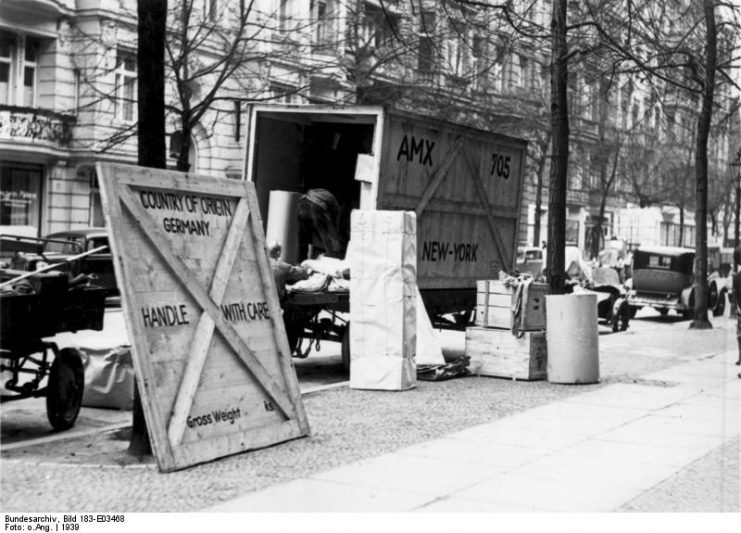
Bundesarchiv, Bild 183-E03468 / CC-BY-SA 3.0
Additionally, thanks to Hitler, a special category of more than 150 “honorary Aryans” was created. These people were not Aryans by blood. The honorary Aryans mainly included large Jewish industrialists who carried out the instructions of the German leader to sponsor various political events. The Nazis divided Jews into the rich and all the rest, and there were special benefits for the rich.
Hans-Peter Ullmann, a former professor of history at the University of Cologne, said that the tax authorities of the Third Reich worked to destroy Jews financially and plunder finances and valuables not only in Germany, but also later in the countries occupied by Germany.
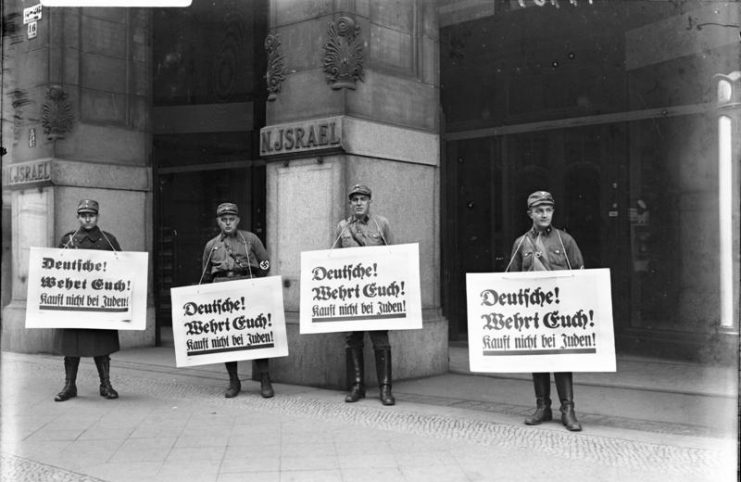
Starting in 1934, German tax laws discriminated against the Jewish population. According to the study, over £12 billion, or nearly 120 billion Reichsmarks at that time, were plundered from German Jews by law. Even those Jews who managed to leave Germany before the beginning of the Holocaust had to give up a part of their savings or wealth in the form of an “exit tax.”
Christine Kuller of the University of Munich, who participated in the study, believes that the tax authorities generated hierarchies of bureaucrats. The bureaucrats, in turn, “discovered dwellings and bank accounts and emptied them,” and then destroyed all traces of those who disappeared in the death camps.
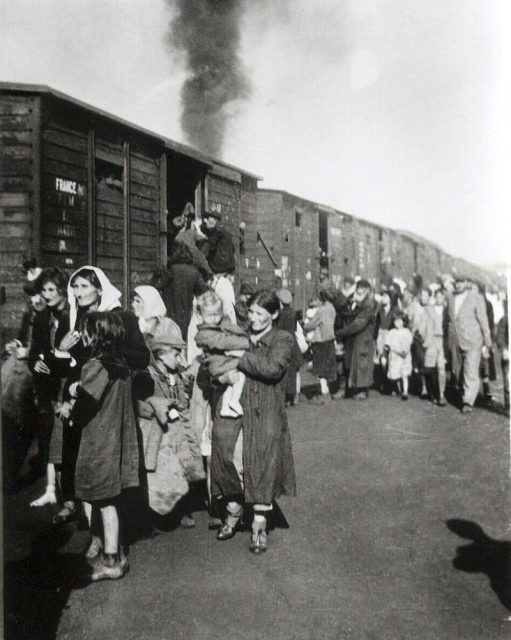
Kuller said, “Post war there was a myth that the civil servants of the finance ministry were neutral, but the reality was that anti-Semitism among them was an everyday occurrence.” Professor Ullmann noted that at least 30% of Germany’s military spending was financed by taxes, borrowing and “outright theft.”
Despite such measures taken to replenish the budget of the Reich, in 1942 Minister of Arms Fritz Todt warned Hitler that Germany had already lost the war economically. This statement was supported by Hitler’s chief architect Albert Speer. However, thanks to Speer’s efforts, the German military industry continued to increase production until the autumn of 1944.
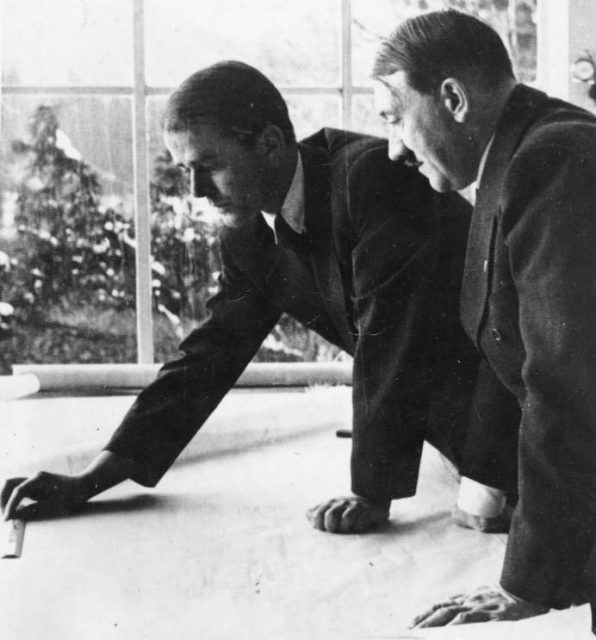
In addition, during WWII forced labor was the basis of the economy of the Third Reich. In October 1939 the Germans legitimized forced labor, obliging all Jewish males between the ages of 14 and 60 to work in occupied Poland.
Later, forced labor laws also began sending Jewish women, and children between the ages of 12 and 14, to work. Jews usually worked 10-12 hours a day in harsh conditions, receiving minimum wages or not receiving them at all.
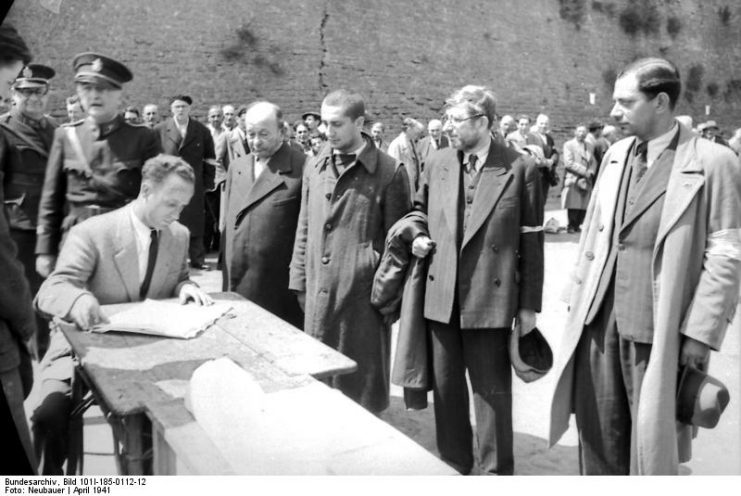
Additionally, the Nazis made a profit by selling off the property of the Jews who left the territories occupied by Germany. The report from the study, for example, details the plundering of 72,000 apartments in the Baltic countries and Poland.
German civil servants carefully noted the wagons that transported loot to the Reich. According to the data received, 1,457 rail cars with Jewish property were sent to Cologne, 2,699 to Hamburg, 1,928 to Essen and 1,023 to Rostock.
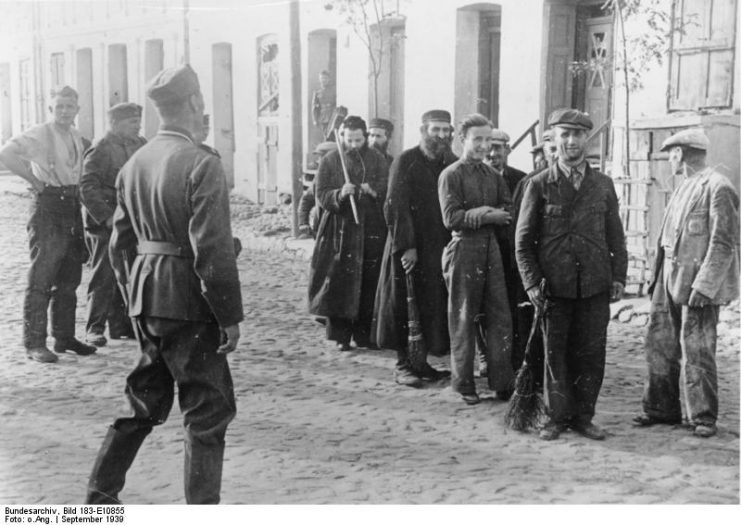
Beginning in 1941, auctions of furniture looted from Jewish homes were held in Hamburg and other major German cities. Sales profits were credited to the Gestapo, and from there transferred to the Reichsbank in Berlin.
Read another story from us: WWII Special Interrogation Group Made Up Of German Jews That Fought Back
This study marked the first time that the German Foreign Ministry had fully scrutinized its wartime records.
